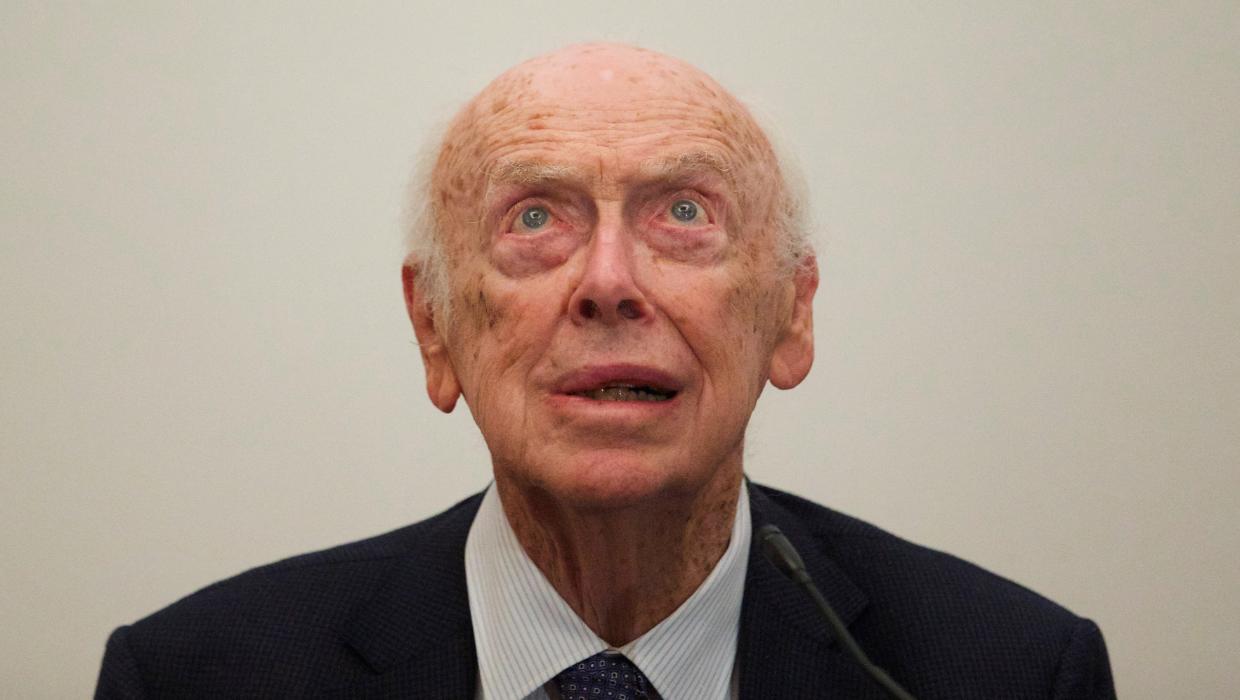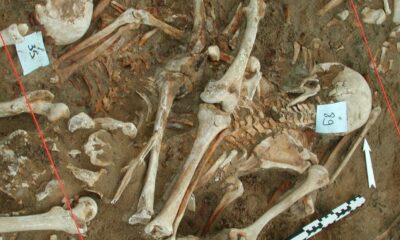Science
Pioneering Geneticist James Watson Passes Away at 95

James Watson, the celebrated scientist known for his pivotal role in the discovery of the double helix structure of DNA, has passed away at the age of 95. His groundbreaking work in 1953, alongside Francis Crick, fundamentally changed the field of genetics and earned them the Nobel Prize in Physiology or Medicine in 1962. Watson’s death marks the end of an era for molecular biology.
Born on April 6, 1920, in Chicago, Illinois, Watson displayed an early interest in science. He studied at the University of Chicago and later earned his PhD from Indiana University, where he began his research on nucleic acids. His collaboration with Crick at the University of Cambridge led to their revolutionary model of DNA, which they described as a twisted ladder, elucidating how genetic information is stored and replicated.
Controversial Legacy
Despite his scientific accolades, Watson’s legacy has been marred by controversy. In later years, he faced significant backlash for making inflammatory remarks about race and intelligence, which led to professional censure. Organizations such as Cold Spring Harbor Laboratory, where he served as president for many years, distanced themselves from his views. In 2019, the laboratory announced that he would no longer be invited to speak at events, reflecting the growing consensus that his statements were incompatible with modern scientific standards and ethics.
Watson’s comments sparked widespread debate about the intersection of science and ethics. While his contributions to genetics are undeniable, many argue that his views undermined the inclusive nature of scientific inquiry. The scientific community has actively sought to address issues of diversity and equity in research, contrasting sharply with Watson’s controversial remarks.
Impact on Science and Society
The impact of Watson’s discovery of DNA’s structure cannot be overstated. It laid the foundation for numerous advancements in fields such as genetics, medicine, and biotechnology. The understanding of DNA has led to significant developments in genetic engineering, personalized medicine, and even the mapping of the human genome.
As news of his death spreads, reflections on Watson’s contributions and controversies will likely dominate discussions in scientific circles. His work has inspired generations of scientists, while his later comments have prompted crucial conversations about responsibility within the scientific community.
Watson’s passing is a reminder of the complex interplay between scientific achievement and personal conduct. While his legacy as a key figure in molecular biology remains intact, it serves as a catalyst for ongoing discussions about ethics in science. As the field continues to evolve, the lessons learned from Watson’s life and career will undoubtedly influence future generations of researchers.
In conclusion, James Watson leaves behind a legacy that is both groundbreaking and contentious. His contributions to science will be remembered, even as the ethical implications of his later views continue to provoke critical dialogue.
-

 Sports2 months ago
Sports2 months agoNetball New Zealand Stands Down Dame Noeline Taurua for Series
-

 Entertainment2 months ago
Entertainment2 months agoTributes Pour In for Lachlan Rofe, Reality Star, Dead at 47
-

 Entertainment4 weeks ago
Entertainment4 weeks agoNew ‘Maverick’ Chaser Joins Beat the Chasers Season Finale
-

 Sports6 days ago
Sports6 days agoEli Katoa Rushed to Hospital After Sideline Incident During Match
-

 Sports2 months ago
Sports2 months agoSilver Ferns Legend Laura Langman Criticizes Team’s Attitude
-

 Politics1 month ago
Politics1 month agoNetball NZ Calls for Respect Amid Dame Taurua’s Standoff
-

 Entertainment2 months ago
Entertainment2 months agoKhloe Kardashian Embraces Innovative Stem Cell Therapy in Mexico
-

 Sports3 days ago
Sports3 days agoJamie Melham Triumphs Over Husband Ben in Melbourne Cup Victory
-

 World3 months ago
World3 months agoPolice Arrest Multiple Individuals During Funeral for Zain Taikato-Fox
-

 Sports3 months ago
Sports3 months agoGaël Monfils Set to Defend ASB Classic Title in January 2026
-

 Entertainment1 month ago
Entertainment1 month agoTyson Fury’s Daughter Venezuela Gets Engaged at Birthday Bash
-

 Sports1 month ago
Sports1 month agoHeather McMahan Steps Down as Ryder Cup Host After Controversy




















